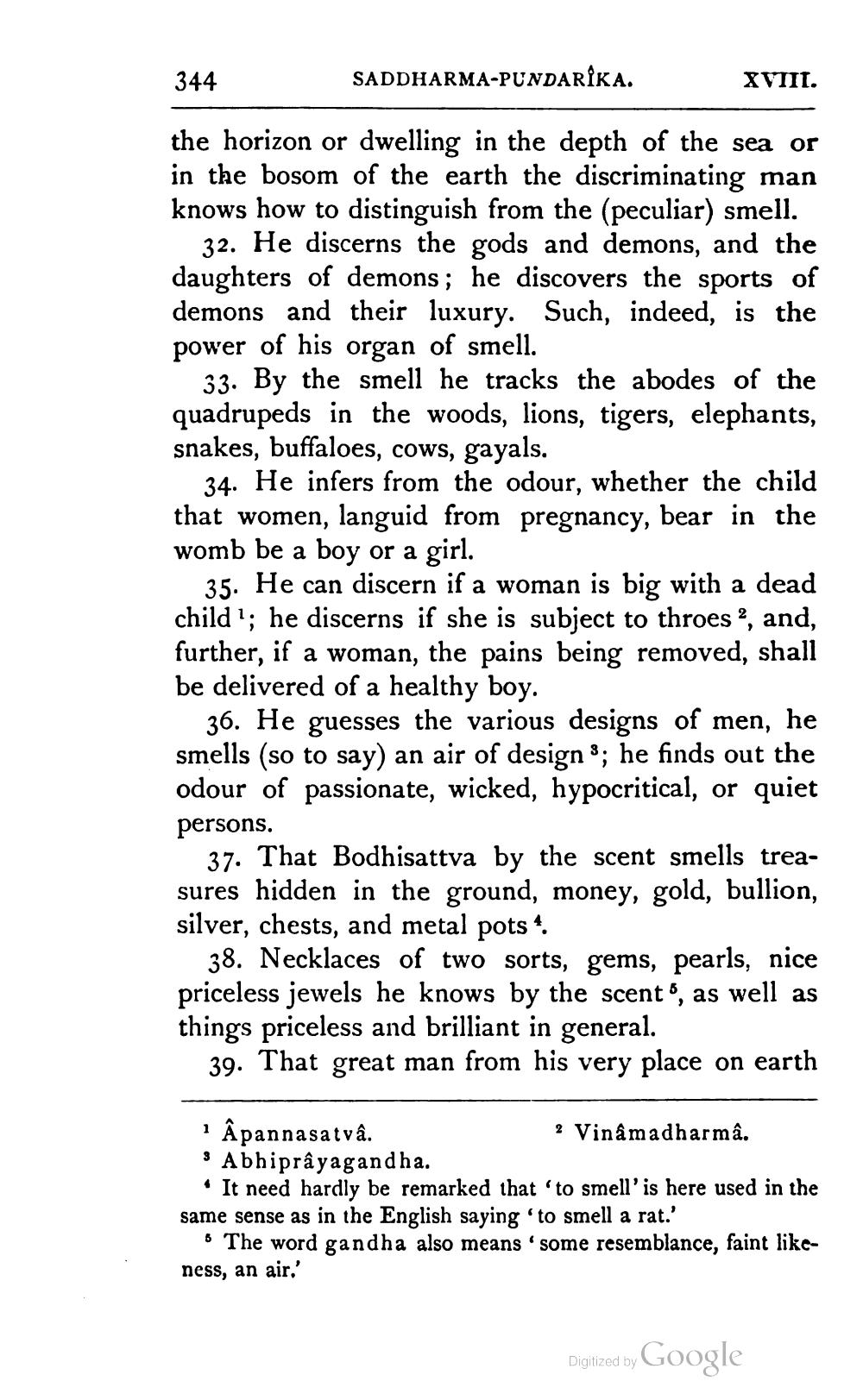________________
344
SADDHARMA-PUNDARIKA.
XVIII.
the horizon or dwelling in the depth of the sea or in the bosom of the earth the discriminating man knows how to distinguish from the (peculiar) smell.
32. He discerns the gods and demons, and the daughters of demons; he discovers the sports of demons and their luxury. Such, indeed, is the power of his organ of smell.
33. By the smell he tracks the abodes of the quadrupeds in the woods, lions, tigers, elephants, snakes, buffaloes, cows, gayals.
34. He infers from the odour, whether the child that women, languid from pregnancy, bear in the womb be a boy or a girl.
35. He can discern if a woman is big with a dead child'; he discerns if she is subject to throes 2, and, further, if a woman, the pains being removed, shall be delivered of a healthy boy.
36. He guesses the various designs of men, he smells (so to say) an air of design 3; he finds out the odour of passionate, wicked, hypocritical, or quiet persons.
37. That Bodhisattva by the scent smells treasures hidden in the ground, money, gold, bullion, silver, chests, and metal pots *.
38. Necklaces of two sorts, gems, pearls, nice priceless jewels he knows by the scents, as well as things priceless and brilliant in general.
39. That great man from his very place on earth
? Âpannasatva.
2 Vinâmadharma. 9 Abhiprayagandha.
• It need hardly be remarked that 'to smell'is here used in the same sense as in the English saying 'to smell a rat.'
• The word gandha also means some resemblance, faint likeness, an air.'
Digitized by Google




